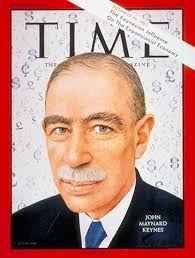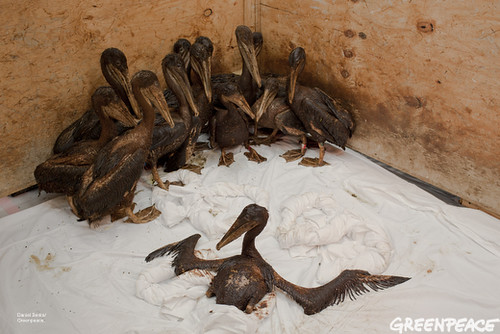24/09 2015
Following the ABCTV Four Corners program last night, I am re-publishing a former post on the fire at Rana Plaza and the garment workers' plight. The original post has quite a collection of links, particularly to labour rights organisations. I have now added a further myriad of links from the ABC Four Corners site. The post has now become quite encyclopaedic with regard to the links. There is no excuse now for being uninformed; for not writing that letter; for not donating or not attending that benefit. Most of all there is no excuse for not encouraging people - in whatever industry - to join their union. Labour rights on the factory floor and humane intervention by governments is what prevents such events as the garment factory fire which has killed, maimed, and defrauded so many. Please act now!
Following the ABCTV Four Corners program last night, I am re-publishing a former post on the fire at Rana Plaza and the garment workers' plight. The original post has quite a collection of links, particularly to labour rights organisations. I have now added a further myriad of links from the ABC Four Corners site. The post has now become quite encyclopaedic with regard to the links. There is no excuse now for being uninformed; for not writing that letter; for not donating or not attending that benefit. Most of all there is no excuse for not encouraging people - in whatever industry - to join their union. Labour rights on the factory floor and humane intervention by governments is what prevents such events as the garment factory fire which has killed, maimed, and defrauded so many. Please act now!
We have all heard about the Bangladesh factory fire of 24 April, 2013 which killed 400 people. This is nothing new. Bangladesh (and those international retailers who commission goods from factories there) have form. The picture above is from a 2012 fire which killed 112 people. For information about the prosecution of the factory owner, please go here.
Michele O'Neil of the Textile Clothing and Footwear Union of Australia reports:
Kmart, Target, Big W and Cotton On have all not signed on to the global agreement and those companies have no excuse not to be part of this. This is an effective way of actually dealing with a huge tragedy.
It is clear that only consumer activism, complaints, and demands for retailers to supply clear labelling and listing of supply chains will change anything and keep our retailing corporations honest, active and responsive to human rights. I have linked below contact forms and pages for the three major retailers mentioned on The World Today by Michele O'Neil.
Kmart contact formBigW contact page
Cotton On contact form
Bangladesh has the lowest minimum wage in the world at $38 month. Cambodia has the second lowest minimum wage in the world at $66 a month, so reports CorpWatch. And, Australian consumers, if you are tempted to say that costs of living are cheaper in both countries then that doesn't wash. These are people whose incomes barely put food in their mouths. Their incomes don't buy four bedroom houses with bathroom, ensuite and plasma TV.
The fact is that Australian greed, First World greed,
is exploiting Third World need.
Western consumers must take some responsibility
for the Bangladesh factory deaths.
One thing you can do that is only a Like away:
I have written to-day to Kelvin Thomson, Parliamentary Secretary for Trade as follows:
Dear Kelvin Thomson,
I write to express my concerns about the recent Bangladesh factory fire which has horrified the world.I write to ask you, as Minister for Trade, what the Australian Government - and in particular the Department of Foreign Affairs and Trade - is doing to assist in:
- Making Australian businesses compile supply chain details in relation to the products they sell and supply them on request to their customers.
- Advising Australian businesses in relation to their responsibilities in relation to human rights when sourcing goods and products from countries with low-wage, non-unionised sweatshops and deathshops.
- Keeping watch on countries with low-wage, non-unionised sweatshops and deathshops.
- Keeping watch on governments of countries with low-wage, non-unionised sweatshops and deathshops.
- Developing Australian Government responses to countries and governments which allow low-wage, non-unionised sweatshops and deathshops.
I plan to follow up to-day by writing to the following retailing organisations:
Below, more links are provided to expand your knowledge on this topic.
Firstly, previous posts on The Network on the 2013 Bangladesh factory fire at Rana Plaza:
###
Fairwear Australia
Asia Floor Wage
Living Wage as a fundamental right of Cambodian Garment Workers
Accord on Fire and Building Safety in Bangladesh
ADDED - Tuesday 25 June 2013
Wondering what you can do after last night's 4 Corners program
Lots of stuff below - from writing letters, to giving money, to action
and all based on great information
Asia Floor Wage
Living Wage as a fundamental right of Cambodian Garment Workers
Accord on Fire and Building Safety in Bangladesh
ADDED - Tuesday 25 June 2013
Wondering what you can do after last night's 4 Corners program
Lots of stuff below - from writing letters, to giving money, to action
and all based on great information
AID, ADVOCACY, RESOURCES
Australian retailers Rivers, Coles, Target, Kmart linked to Bangladesh factory worker abuse
The above link provides links under the following headings
Email addresses you can write to about their unethical behaviour:
amardirossian@ woolworths.com.au
jcoates@bigw.com.au
q@rivaus.com.au
customerservice@btr.com.au
just group@jjh.com.au
Clothing retailers respond
The following retailers respond: Coles, Forever New, KMart Australia, Big W, Mango Clothing, Cotton On, Benetton, Mango
Reports and Company Audits
How sustainable are Australian retailers' new sourcing strategies? | AMP | Jul 2012
See Nothing, Know Nothing, Do Nothing | Inst. for Global Labour and Human Rights | May 2012 -
Chinese Sweatshop in Bangladesh | Inst. for Global Labour and Human Rights | 8 Mar 2012
Bangladesh's ready-made garments landscape | McKinsey & Co | 2011
2011 Sustainability Report | MANGO
Ethical Code of Conduct | Forever New Clothing Pty Ltd
Labour Practices in our global supply chain | Woolworths Limited
World News Coverage
Dreams of Bangladesh garment workers often go unrealized, or become nightmares for families | Star Tribune | Jun 2013
LISTEN: Fashion's Victims: An Artist's Focus On Garment Workers | NPR | 19 Jun 2013
Bangladesh Factories' Safety Issues Run Deep: Survey | The Irrawaddy | 17 Jun 2013
Most US Retailers Choose Not to Sign Bangladesh Factory Accord | Voice of America | 17 Jun 2013
Uncertain future for Rana Plaza survivors | Dhaka Tribune | 11 Jun 2013
'Rana deserves life term' | The Bangladesh Chronicle | 22 May 2013
The Cost of Making Factories in Bangladesh Safer: Ten Cents | The New Yorker | 16 May 2013
LISTEN: Australian retailers snub Bangladesh factory safety accord | ABC PM | 16 May 2013
Death Mill | Foreign Policy | 9 May 2013 - How the ready-made garment industry captured the Bangladeshi state.
Bangladesh: Tragedy Shows Urgency of Worker Protections | HRW | 25 Apr 2013
Information on Ethical Garment Manufacturing
Accredited Brands | Ethical Clothing Australia
The Culprits - Who is to Blame? | FairWear Australia
Find Ethical Australian Products | Ethical Clothing Australia
Retailers | Ethical Clothing Australia
Supply Chains in the Clothing Industry | FairWear Australia
 |





















